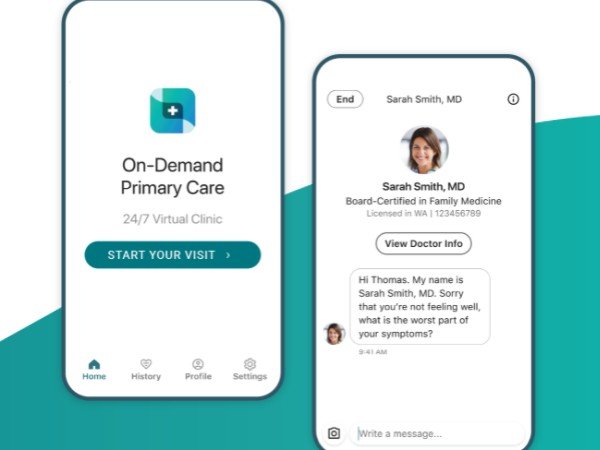 While the trend now is for healthcare to be virtual, with many appoints taking place over the phone or video, some companies are taking it even further by taking a mobile-first approach, allowing patients to access care anytime, anywhere they happen to be.
While the trend now is for healthcare to be virtual, with many appoints taking place over the phone or video, some companies are taking it even further by taking a mobile-first approach, allowing patients to access care anytime, anywhere they happen to be.
One of those companies is 98point6, which even calls itself a provider of “text-based primary care,” covering everything from diseases of the respiratory system and skin to infectious and parasitic diseases.
The company drives people to sign up from their phone and then uses AI and machine learning in order to get information on the patient, as well as to learn from their visits, so it can provide better care as it gets smarter. The patient mainly interacts with a board-certified doctor, however, not a chatbot.
When patients first start using the service, they are paired with the first available physician licensed in their state and don’t need to select a doctor in order to access the service. Once the patient has begun their visit, they have access to the doctor’s profile information including photograph, medical school, years of practice and medical license number.
The company uses the data it collects so it can to get to know each patient and their medical history; that means that every time a patient interacts with 98point6, they’re speaking to the same service, making it feel like there’s continuity of care. On top of that, the patient’s visit history and medical history are made available to the physician who can read the entire chat transcript from previous visits, allowing them to pick up exactly where the last visit ended.
In addition to primary care, 98point6 also launched a behavioral and mental health solution in February.
The company makes its money in two ways: first is via its direct-to-consumer leg, with a subscription plan that starts at $30 for the first three months, but then jumps to $120 for a full year, plus $1 per doctor visit, whether it’s a text or video chat.
The company makes most of its revenue through its primary method of distribution: commercial partners, meaning employers, health plans, systems and partners. These partners cover the cost of membership for the patient, which is a flat fee for unlimited access. That means that its employees and members pay either nothing, or a low cost per visit, based on the health plan type they have.
The company now has 4.8 million members and 300 commercial contracts.
Founded in 2015, 98point6 has raised $247.3 million in venture funding, including a $118 million round in October of 2020 at a $1.17 billion valuation. Investors include Goldman Sachs, L Catterton, Activant Capital, Nader J. Naini, Laurence D. Fink, James Sinegal, David Viniar.
(Vator and UCSF Health Hub are teaming up for an event in November called “Primary Care and the New Medical QB,” in which we will be talking to various stakeholders in the healthcare system, including providers, patients, and startups, about this change)
(Image source: 98point6.com)



















